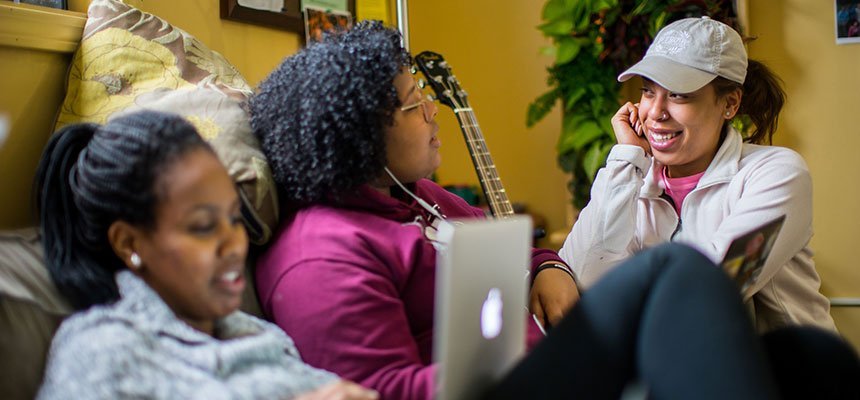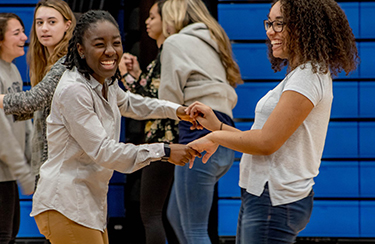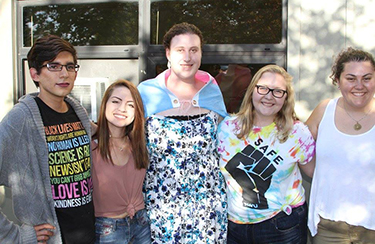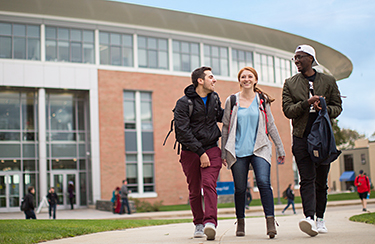
Diversity, Equity & Inclusion: Student Access, Success and Equity
Roger Williams University is an open, accepting and affirming community of citizen scholars. We stand firmly committed to creating a campus that is diverse and inclusive as well as welcoming to and accepting of all people regardless of race, ethnicity, gender, sexual orientation, gender identity or expression, ability, socio-economic class, age or spirituality.
We reflect this in our many programs, initiatives, organizations, and clubs throughout the university, ranging from our undergraduate programs to the School of Law.
Embedded Equity
The Roger Williams University community has committed to diversity, respect for all races, ethnicities, genders, identities and abilities, and access to an affordable education. Our diversity, equity, and inclusion efforts are embedded within our Strategic Action Plan and are essential to our institutional direction.
![]()
Follow our Instagram accounts: Intercultural Center and QTRAC for tips and updates.
![]()
Follow our Facebook account: RWU Intercultural Center
Get Involved
At RWU, you can connect with students of many different backgrounds from around the country and around the world:
Intercultural Center
 The Intercultural Center creates transformative, capacity building experiences for minoritized student populations that leverage high-impact practices to close opportunity gaps and help students find success at - and beyond - college.
The Intercultural Center creates transformative, capacity building experiences for minoritized student populations that leverage high-impact practices to close opportunity gaps and help students find success at - and beyond - college.
Queer and Trans Student Initiatives
 At RWU, we work with and support students to raise awareness and acceptance of the various communities that make up our larger queer and trans community (for example; lesbian, gay, bisexual, transgender, queer, intersex, asexual, pansexual, or questioning communities). Through the Intercultural Center and the QTRAC, we offer a direct resource area for all members of the queer and trans communities and their allies.
At RWU, we work with and support students to raise awareness and acceptance of the various communities that make up our larger queer and trans community (for example; lesbian, gay, bisexual, transgender, queer, intersex, asexual, pansexual, or questioning communities). Through the Intercultural Center and the QTRAC, we offer a direct resource area for all members of the queer and trans communities and their allies.
P.E.A.C.E Program
 PEACE (Peer Empowerment, Activism/Advocacy, and Community Engagement) is a community of students who value equity, diversity, inclusion, intercultural learning, community engagement, and social justice activism. The program seeks to build strong leaders who understand the importance of critical social justice literacy and fluency.
PEACE (Peer Empowerment, Activism/Advocacy, and Community Engagement) is a community of students who value equity, diversity, inclusion, intercultural learning, community engagement, and social justice activism. The program seeks to build strong leaders who understand the importance of critical social justice literacy and fluency.
